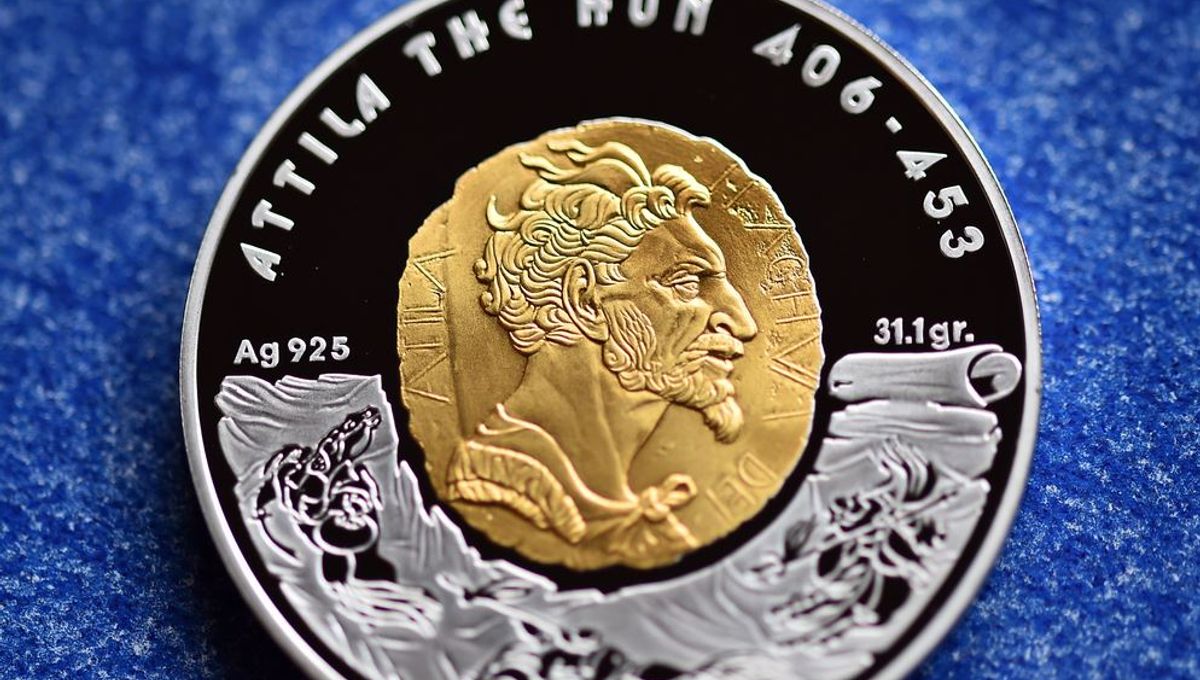
Attila the Hun is one of history’s most notorious warlords – yet while he has traditionally been cast as a bloodthirsty barbarian motivated only by a lust for gold, new research suggests that his constant attacks on the Roman Empire may have been driven by drought. After analyzing 2,000 years’ worth of tree-ring data, the study authors found that many of Attila’s most epic raids occurred during extremely dry years, and may therefore have represented an attempt to mitigate the effects of an unstable climate.
Though the origins of the Huns remain uncertain, they are believed to have crossed into Eastern Europe from Central Asia sometime around 370 CE, before settling on the Great Hungarian Plain to the east of the River Danube. Following Attila’s rise to power in 434 CE, the Huns increasingly pillaged the eastern flank of the Roman Empire, and are largely credited with expediting the fall of Rome.
“Historical sources tell us that Roman and Hun diplomacy was extremely complex,” explained study author Dr Susanne Hakenbeck in a statement. “Initially it involved mutually beneficial arrangements, resulting in Hun elites gaining access to vast amounts of gold. This system of collaboration broke down in the 440s, leading to regular raids of Roman lands and increasing demands for gold.”
However, the researchers say that this diplomatic breakdown alone may not explain Attila’s military incursions, and point out that the period coincided with a series of droughts. Using stable carbon and oxygen isotope data from oak tree rings, the study authors reconstructed the Central European hydroclimate, and found that the most devastating Hun raids of 447, 451 and 452 all occurred during extremely dry years.
“Tree ring data gives us an amazing opportunity to link climatic conditions to human activity on a year-by-year basis,” said study author Professor Ulf Büntgen. “We found that periods of drought recorded in biochemical signals in tree-rings coincided with an intensification of raiding activity in the region.”
Based on these findings, the researchers write that “the Huns’ apparently inexplicable violence may have been one strategy for coping with climatic extremes within a wider context of the social and economic changes that occurred at the time.”
This assumption is strengthened by previous isotopic analyses of fifth-century Hunnic skeletons, which revealed sudden changes in diet that may reflect the various strategies employed by the Huns in response to an uncertain climate.
The authors speculate that some of the group’s raids may have been launched to secure food and livestock, although they concede that more evidence is required to support this theory. They also say that Attila’s demands that the Romans hand over an extensive strip of territory flanking the Danube might have been a mitigating strategy, as land in a floodplain would have provided greater food security in times of drought.
Furthermore, an unstable climate may have led to major social restructuring within Hun communities, as herders abandoned their flocks to become raiders. The emergence of these war parties would then have led to a new network of allegiances between warlords, with Attila at the top of the hierarchy.
Such alliances would probably have been maintained with gold subsidies, which may explain Attila’s increasing demands for Roman gold.
“Climate-induced economic disruption may have required Attila and others of high rank to extract gold from the Roman provinces to keep war bands and maintain inter-elite loyalties,” explains Hakenbeck.
Fortunately for the Romans, Attila died suddenly in 453 after choking on his own blood following a nosebleed, and the Huns faded away shortly after. However, the damage they had already inflicted proved cataclysmic for the Roman Empire, highlighting the impact that climate can have on even the mightiest of civilizations.
The study is published in The Journal of Roman Archaeology.
Source Link: Attila The Hun May Have Raided The Roman Empire Because Of Drought